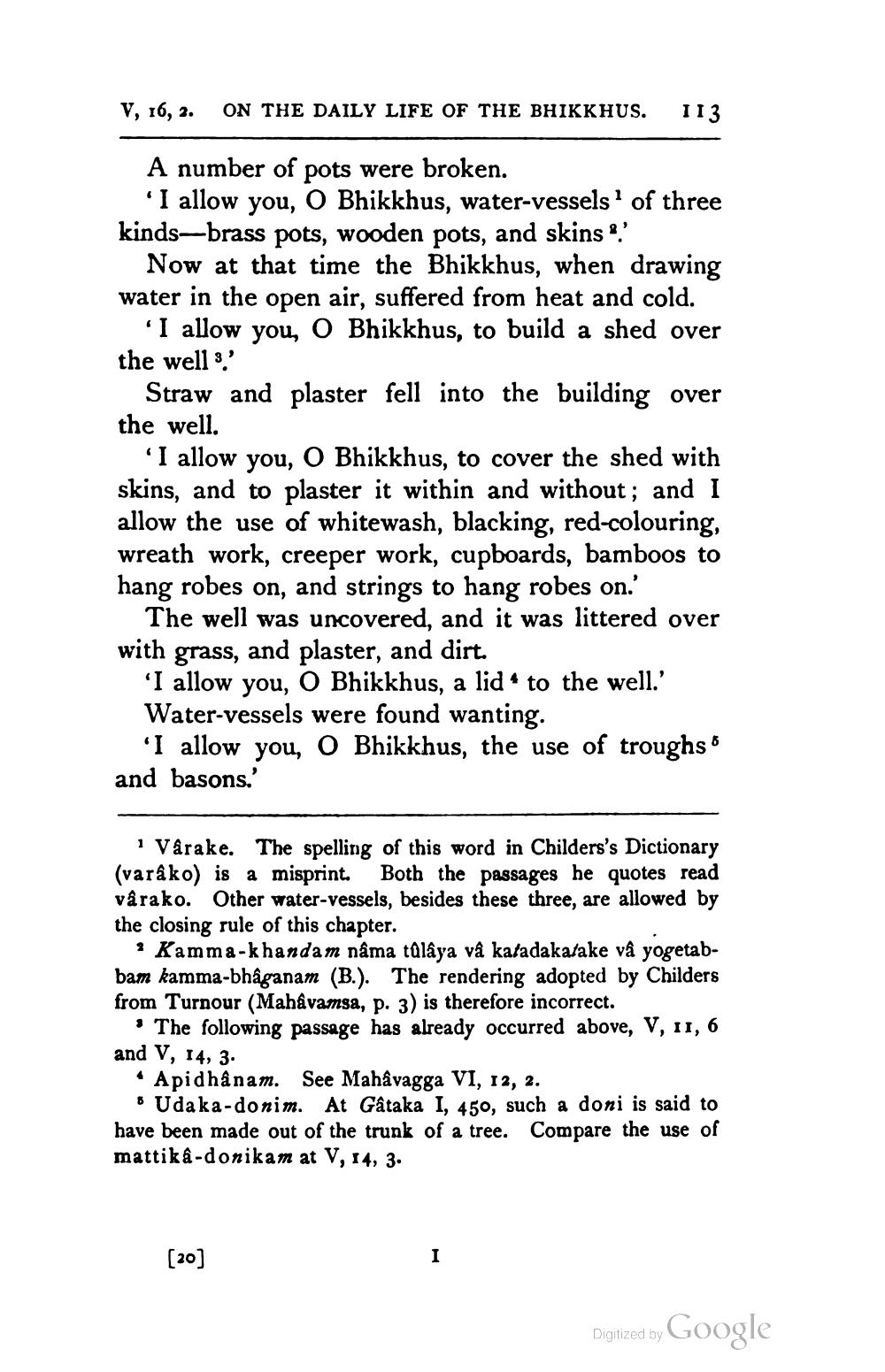________________
V, 16, 2. ON THE DAILY LIFE OF THE BHIKKHUS.
113
A number of pots were broken. 'I allow you, O Bhikkhus, water-vessels of three kinds-brass pots, wooden pots, and skins ?
Now at that time the Bhikkhus, when drawing water in the open air, suffered from heat and cold.
'I allow you, O Bhikkhus, to build a shed over the well S.'
Straw and plaster fell into the building over the well.
I allow you, O Bhikkhus, to cover the shed with skins, and to plaster it within and without; and I allow the use of whitewash, blacking, red-colouring, wreath work, creeper work, cupboards, bamboos to hang robes on, and strings to hang robes on.'
The well was uncovered, and it was littered over with grass, and plaster, and dirt.
'I allow you, O Bhikkhus, a lid to the well.' Water-vessels were found wanting.
'I allow you, O Bhikkhus, the use of troughs and basons.'
1 Várake. The spelling of this word in Childers's Dictionary (varako) is a misprint. Both the passages he quotes read vârako. Other water-vessels, besides these three, are allowed by the closing rule of this chapter.
i Kamma-k handam nâma tâlâya va katadakalake vå yogetabbam kamma-bhaganam (B.). The rendering adopted by Childers from Turnour (Mahavamsa, p. 3) is therefore incorrect.
• The following passage has already occurred above, V, 11, 6 and V, 14, 3.
• Apidhanam. See Mahavagga VI, 12, 2.
o Udaka-donim. At Gataka I, 450, such a doni is said to have been made out of the trunk of a tree. Compare the use of mattika-donikam at V, 14, 3.
[20]
Digitized by
Digitized by Google




